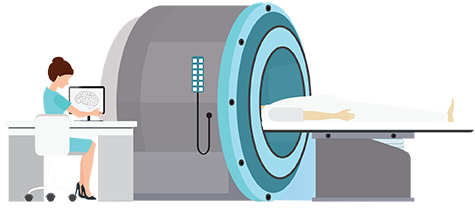

Thinking of attending a radiology school in Iowa? Radiologic workers, like technologists and sonographers and medical imaging workers play an important role of helping doctors find illness and diseases in patients. Using sophisticated equipment to take images of the inside of the body and their knowledge of anatomy, patient positioning, and medical imaging technology, subjects at the core of what’s needed in a radiology education, radiologic workers have a variety of roles to play.
If you’re interested in a career in the field of radiology, find more information for each type of radiologic job below:
Here’s a list of some schools in Iowa that have at least one radiology program available, according to the National Center for Education Statistics:
If you want to become a radiologic technologist, postsecondary education is typically required — as well as a state license. If you’re trying to become a radiologic technologist in Iowa, try using these steps to get started:
It could help to get in touch with someone local who works in radiology, for firsthand feedback about the career in Iowa.
Here is a snapshot of what you might expect to make working in the field of radiology in the state of Iowa, per the BLS:
| Career | Total Employment | Annual Mean Wage |
|---|---|---|
| Cardiovascular Technologists and Technicians | 460 | 53,790 |
| Diagnostic Medical Sonographers | 840 | 65,080 |
| Magnetic Resonance Imaging Technologists | 300 | 58,830 |
| Nuclear Medicine Technologists | 170 | 72,140 |
| Radiologic Technologists | 2,150 | 51,780 |
Iowa Radiological Society
17060 County Road D-62
Monticello, IA 52310
http://www.isrt.org/
Iowa Department of Health
401 S.W. 7th
Des Moines, Iowa 50309
(515) 281-3478
http://www.idph.state.ia.us/eh/radiological_health.asp